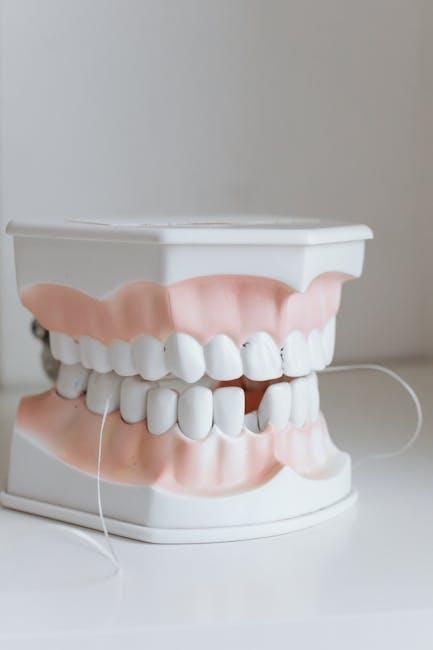Fluoride Ban Could Create Cavities For 1 Of Every 3 U.S. Kids – U.S. News & World Report
Recent discussions surrounding a potential fluoride ban in the United States have raised significant concerns among dental health experts and parents alike. As fluoride has been a cornerstone in preventing tooth decay, a ban could lead to a surge in cavities, affecting approximately one out of every three children in the country. In this article, we’ll explore the crucial role fluoride plays in children’s dental health, the potential impact of a ban, and practical tips for maintaining healthy smiles in the absence of water fluoridation.
The Importance of Fluoride in Preventing Cavities
Fluoride is a naturally occurring mineral that strengthens tooth enamel and makes teeth more resistant to decay caused by acids and bacteria. It is commonly added to public drinking water, dental products like toothpaste, and mouth rinses. The Centers for Disease Control and Prevention (CDC) considers water fluoridation as one of the top public health achievements of the 20th century due to its effectiveness in reducing tooth decay.
How Fluoride Works
- Strengthens enamel: Fluoride helps rebuild weakened tooth enamel through a process called remineralization.
- Reduces acid effects: It inhibits the ability of bacteria in the mouth to produce harmful acids that wear down teeth.
- Prevents cavity formation: Consistent fluoride exposure lowers the likelihood of cavities forming over time.
What a Fluoride Ban Could Mean for U.S. Children
Eliminating fluoride from water supplies or banning its use could be detrimental, especially for children who rely on community fluoridation for preventive dental care. According to leading dental health associations and reports from U.S. News & World Report, nearly one-third of U.S. children could experience an increase in tooth decay if fluoride is no longer available in their drinking water.
| Statistic | Impact of Fluoride Ban |
|---|---|
| 1 in 3 children | Expected increase in cavities nationwide |
| 40% rise | Estimated increase in dental treatment costs |
| Top 10 states | Most at risk due to limited alternative fluoride sources |
Why Children Are More Vulnerable
Children’s teeth are still developing, and they tend to consume more sugary foods and drinks, increasing cavity risk. Additionally, they might not have established good oral hygiene habits. Fluoride’s protective effects during childhood are therefore critical to promoting long-term oral health.
Benefits of Fluoride Beyond Cavity Prevention
Fluoride’s benefits extend past just cavity prevention and include:
- Cost-effective public health measure: Saves families and healthcare systems money by lowering the need for extensive dental treatments.
- Accessibility: Provides equitable protection in communities lacking access to professional dental care.
- Safe when used properly: Extensive research shows that fluoride is safe and effective at recommended levels.
Case Study: Regions Without Fluoridated Water
Regions that do not fluoridate their water supplies often report higher rates of childhood tooth decay. For example, several studies from parts of Europe and the U.S. show elevated dental cavity prevalence in children without access to fluoridated water. These real-world examples reinforce the importance of fluoride for oral health.
Practical Tips to Protect Your Child’s Teeth Without Fluoride
If you live in an area considering or enforcing a fluoride ban, here are some steps to maintain your child’s oral health:
- Use fluoride toothpaste: Most toothpaste brands contain fluoride. Supervise brushing to use the right amount and avoid swallowing.
- Maintain regular dental visits: Early dental checkups can catch and manage cavities before they progress.
- Promote good oral hygiene: Encourage brushing twice daily and flossing once a day.
- Limit sugary snacks and drinks: Reduce exposure to cavity-causing sugars.
- Consider fluoride supplements: Consult your pediatric dentist about fluoride drops or tablets if water fluoridation is not available.
First-Hand Experience: A Parent’s Perspective
Emily, a mother from a community where water fluoridation was discontinued, shares her story: “After the fluoride was removed, our dentist warned us that my kids’ risk for cavities had gone up a lot. We’ve since been extra vigilant with brushing, using fluoride toothpaste, and scheduling regular dental visits. It’s been more challenging, but we understand how important fluoride was.”
Conclusion
The possible fluoride ban presents a real threat to the dental health of U.S. children. With tooth decay already affecting millions, removing this vital mineral could increase cavities for 1 out of every 3 kids, leading to higher dental costs and poorer quality of life. Fluoride’s proven benefits in strengthening teeth and preventing cavities highlight its critical role in public health. Parents and caregivers must stay informed and proactive by implementing solid oral hygiene habits and consulting dental professionals to protect their children’s smiles—fluoride or not.
Stay tuned with trusted sources like U.S. News & World Report for updates on fluoride policies and more oral health insights.


